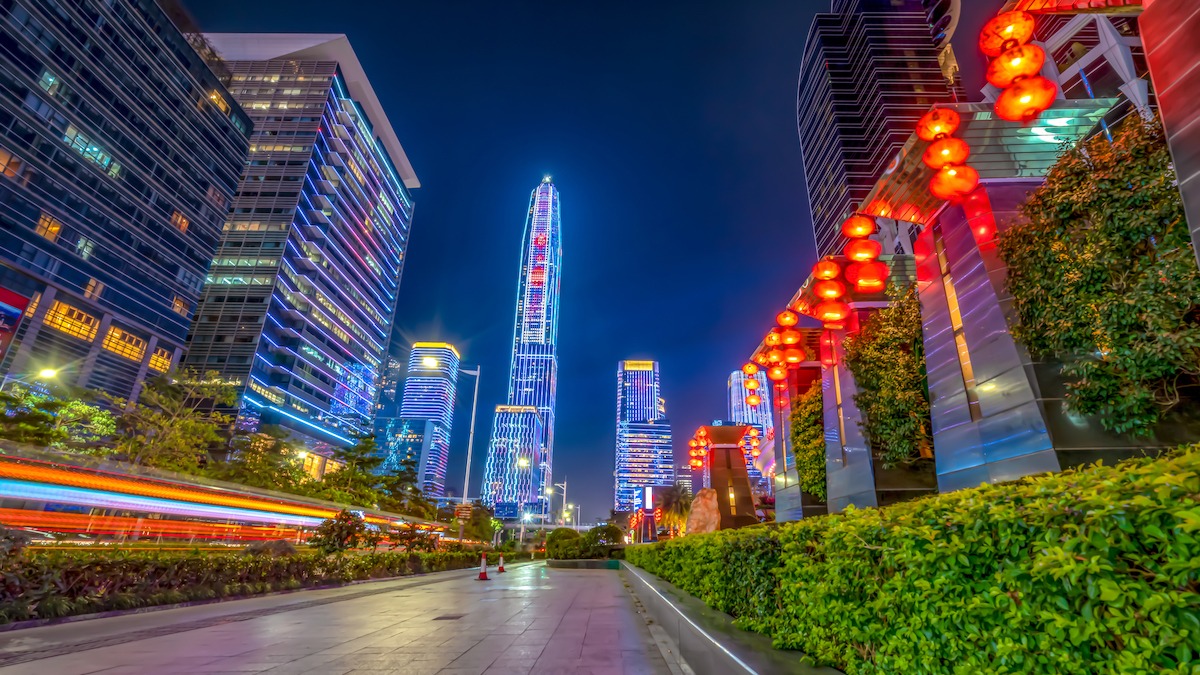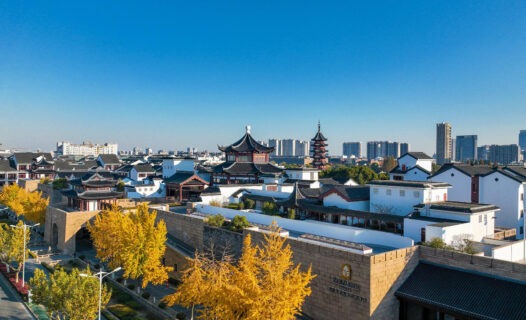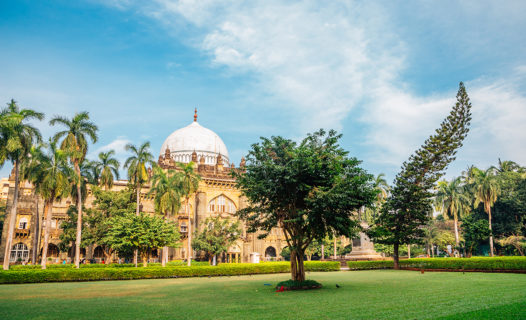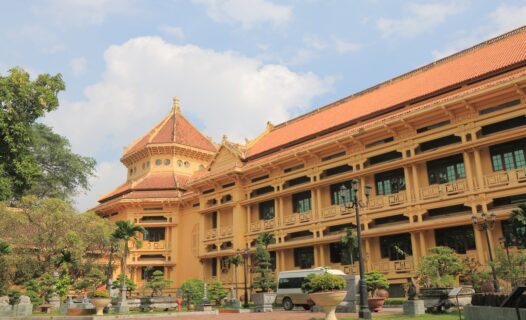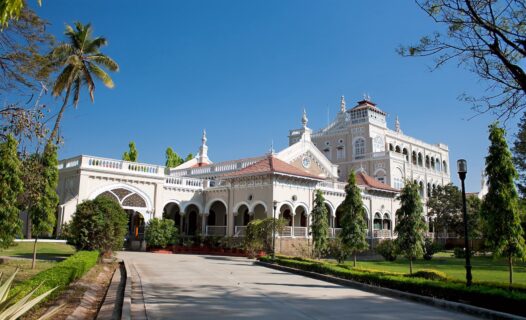Introduction
As spring breathes new life into the world, one of the most significant cultural events in China arrives: the Qingming Festival, also known as Tomb Sweeping Day. This enchanting festival, celebrated on the 104th day after the winter solstice, is more than just a day for family gatherings; it’s a heartfelt journey into the past, where honoring ancestors and embracing the beauty of nature intertwine. For many, it’s a time to reconnect with loved ones who have passed, reflecting on memories while enjoying the vibrant blooms of spring.
The Qingming Festival is steeped in rich traditions and customs that showcase the deep-rooted values of ancestor worship and filial piety. As families gather to clean graves and make offerings, the air fills with the scent of incense and the sound of laughter, creating a poignant atmosphere that celebrates both life and memory. This article invites you to explore the fascinating history, customs, and activities that make the Qingming Festival a unique cultural experience. So, grab your kites and get ready for a delightful adventure!
Discover the Qingming Festival: A Deep Cultural Dive
The origins of the Qingming Festival can be traced back over 2,500 years, rooted in the ancient practice of ancestor veneration. Initially, it was a time for people to enjoy the beauty of spring while paying respect to their ancestors. Today, it has evolved into a significant cultural holiday that highlights the importance of family, respect, and remembrance.
Historical Significance of Qingming
The festival is celebrated during the Spring Equinox, marking a time when day and night are of equal length, symbolizing balance and harmony. The name "Qingming" translates to "clear and bright," which perfectly captures the essence of spring as nature awakens from its winter slumber. This period is not just about cleaning graves; it’s about celebrating life, cherishing memories, and reinforcing family bonds.
Folklore and Myths Surrounding the Festival
As with many traditions, the Qingming Festival is wrapped in intriguing folklore. One popular tale tells of a nobleman who, upon discovering that his father’s grave was neglected, vowed to honor him by creating a festival dedicated to ancestor worship. This story reflects the profound respect for family and the lengths to which one will go to honor their lineage. Such legends add a layer of depth to the celebrations, reminding us that history and heritage are alive in our hearts.
Another charming myth involves the Qingming Festival’s association with the Cold Food Festival, which precedes it. According to legend, a loyal minister named Jie Zitui sacrificed his own flesh to save his starving king. To commemorate his loyalty, the king decreed that no fire could be lit on the anniversary of Jie’s death, leading to the tradition of eating cold food. This beautiful tale reinforces the themes of loyalty and sacrifice that resonate with many families during Qingming.
Filial Piety and Modern Celebrations
Today, the spirit of filial piety continues to shape the way Qingming is celebrated. Families gather to clean and maintain the graves of their ancestors, often bringing along favorite foods, flowers, and other offerings. This act of remembrance is not just a ritual; it’s a heartfelt expression of love and gratitude, bridging generations and keeping family ties strong.
As you prepare to experience the Qingming Festival, you’ll find that the blend of historical significance and modern practices creates a rich tapestry of cultural heritage. The festival is not just about the past; it’s a celebration of life and the beauty of spring, inviting everyone to participate in its vibrant customs.
Traditional Tomb Sweeping Customs: Rituals and Practices
When it comes to honoring ancestors during the Qingming Festival, the rituals and customs are both touching and meaningful. Families take part in various practices to ensure their loved ones are remembered and respected, transforming grave visits into heartfelt family gatherings.
Cleaning Graves and Making Offerings
The most prominent custom is, of course, tomb sweeping. Families travel to cemeteries to clean the graves of their ancestors, removing weeds, debris, and any remnants of winter. This act of care symbolizes the love and respect that the living hold for those who have passed. It’s not uncommon to see families working together, sharing stories and memories as they tidy up the resting places of their loved ones.
After the cleaning, offerings are made. These can include food, tea, and even favorite items of the deceased. The act of presenting these offerings is a way to invite the spirits of ancestors to join the living in celebration, fostering a deep connection between the two worlds. As you join in these customs, you’ll feel the warmth of family ties and the importance of remembrance.
Burning Joss Paper and Incense
Another integral part of the Qingming rituals is the burning of joss paper and incense. Joss paper, often crafted to resemble money, symbolizes wealth and prosperity, ensuring that ancestors have the resources they need in the afterlife. Families gather around the graves to light incense sticks, sending prayers and wishes to their loved ones above. The smoke rising into the sky serves as a beautiful reminder of the connection between the living and the departed.
These memorial rituals create an emotional atmosphere that resonates with many participants. The act of honoring ancestors is not merely a tradition; it’s a deeply personal experience that fosters a sense of belonging and continuity within families. As you partake in these customs, you’ll find that the Qingming Festival offers a profound opportunity for reflection and gratitude.
Springtime Delights: Seasonal Activities During Qingming
As the Qingming Festival rolls in, the air is filled with the sweet scent of blooming flowers and the joyous sounds of families enjoying the great outdoors. This is a time when nature comes alive, and so do the festivities! From kite flying to leisurely strolls in beautiful parks, there’s no shortage of seasonal activities that capture the spirit of spring.
Kite Flying Traditions and Their Meanings
Kite flying is a beloved custom during the Qingming Festival, symbolizing the release of spirits and the welcoming of good fortune. Families gather in parks and open spaces, where colorful kites dance in the sky, creating a breathtaking spectacle. The act of flying kites is not just for fun; it’s steeped in tradition. Some believe that the higher the kite flies, the more blessings it brings to the family.
If you’re looking to join in on this delightful activity, head to popular kite-flying spots like Beijing’s Ditan Park or Hangzhou’s West Lake. These locations are perfect for enjoying a sunny day while watching your kite soar. Don’t forget to bring your own kite or purchase a beautifully crafted one from local vendors. The vibrant colors and intricate designs will surely add to your experience!
Spring Outings and Nature Walks
What better way to celebrate the arrival of spring than by taking a leisurely nature walk? During Qingming, many families embark on outings to enjoy the blooming cherry blossoms and lush greenery. Parks and gardens become popular destinations, where people can soak in the beauty of nature while reflecting on the memories of their ancestors.
Some must-visit spots include Yuyuantan Park in Beijing, famous for its cherry blossom festival, and Hangzhou’s Xixi Wetlands, where you can stroll along scenic paths surrounded by vibrant flora and fauna. As you wander, take a moment to appreciate the breathtaking views and the fresh spring air. It’s a perfect way to connect with nature and honor the spirit of the season!
Culinary Traditions of Qingming: A Taste of Spring
No festival is complete without indulging in delicious food, and the Qingming Festival is no exception! This time of year brings a variety of traditional dishes that not only tantalize the taste buds but also carry deep cultural significance.
Qingtuan and Other Seasonal Delicacies
One of the most iconic foods associated with Qingming is Qingtuan, or green rice balls. Made from glutinous rice flour and filled with sweet red bean paste, these delightful treats are often colored with the juice of the mugwort plant, giving them a vibrant green hue. Eating Qingtuan symbolizes the arrival of spring and the renewal of life.
Other seasonal delicacies include spring rolls and peach blossom cakes, each with its own story and significance. Spring rolls, for example, represent wealth and prosperity, making them a popular choice for family gatherings. If you’re eager to try these dishes, local markets and restaurants are sure to have them on their menus during the festival.
Symbolism of Food During Qingming
Food during the Qingming Festival is not just about flavor; it’s about honoring ancestors and celebrating life. Each dish carries its own symbolism, often reflecting themes of renewal, family unity, and gratitude. When dining with family, take a moment to appreciate the stories behind each dish and the memories they evoke. Sharing these meals strengthens family bonds and keeps traditions alive.
Festivals and Local Events: Celebrating Qingming Across China
The Qingming Festival is celebrated with unique flair across different regions in China. Each locality adds its own twist to the festivities, showcasing the rich tapestry of Chinese culture. From grand parades to intimate family gatherings, there’s something special happening everywhere!
Notable Cities and Their Celebrations
In Beijing, the festival is marked by vibrant flower markets and cultural performances, where visitors can immerse themselves in the local traditions. The Huanghuacheng Great Wall becomes a popular spot for families to hike and pay respects to their ancestors while enjoying stunning views.
Meanwhile, in Hangzhou, the Qingming Festival coincides with the cherry blossom season, creating a picturesque backdrop for family outings and celebrations. The local parks host various activities, including traditional music performances and art exhibitions, making it a vibrant time to visit.
Local Festivals and Community Events
Many towns and villages host their own unique celebrations, often featuring traditional music, dance, and even theatrical performances that tell stories of ancestral veneration. These community events are a fantastic way to engage with local culture and meet new friends while learning about the significance of the festival.
Practical Travel Tips for Experiencing Qingming
Planning to visit China during the Qingming Festival? Here are some handy tips to ensure you make the most of your experience while immersing yourself in the rich traditions of this beautiful celebration!
Accommodation Recommendations
Finding the right place to stay is key to enjoying your trip. From luxury hotels to traditional guesthouses, there are plenty of options to suit every budget. For a unique experience, consider booking a stay at a traditional courtyard hotel in Beijing or a charming inn by West Lake in Hangzhou. These accommodations will not only provide comfort but also a taste of local culture.
Transportation Tips and Public Transport Options
Getting around during the festival can be a breeze if you plan ahead. Public transportation, including buses and subways, is efficient and widely used during Qingming. However, be prepared for larger crowds, especially near popular sites. If you prefer more flexibility, consider renting a bike or using ride-sharing apps to explore at your own pace.
Peak Travel Times and Booking in Advance
Keep in mind that Qingming is a public holiday, and many locals travel during this time. It’s wise to book your accommodations and transportation well in advance to avoid any last-minute hassles. This way, you can focus on enjoying the festivities and creating unforgettable memories!
Sustainable Practices: Eco-Friendly Celebrations
Biodegradable Offerings and Eco-Conscious Travel Tips
When making offerings to ancestors, consider using biodegradable materials. Instead of traditional joss paper, opt for eco-friendly alternatives that won’t harm the environment. Many local shops now offer sustainable options, so you can pay your respects while being kind to Mother Earth.
Community Efforts for Environmental Preservation
Join in on community initiatives aimed at preserving local parks and natural sites. Many organizations host clean-up events during Qingming, encouraging families to come together and give back to the environment. Participating in these activities not only supports the community but also enhances your travel experience.
Outdoor Sports and Activities: Enjoying Nature in Spring
Spring is the perfect time to get outdoors and enjoy the fresh air! The Qingming Festival coincides with a plethora of outdoor activities that promote health and wellness.
Nature Walks and Hiking Trails
Explore the breathtaking landscapes of China by taking nature walks or hiking in national parks. Trails in Zhangjiajie National Forest Park and Jiuzhaigou Valley offer stunning views and a chance to connect with nature. Whether you’re an avid hiker or just looking for a leisurely stroll, there’s a trail for everyone!
Seasonal Sports Events and Outdoor Festivals
Many cities host seasonal sports events during Qingming, from marathons to traditional sports competitions. Participating in these events is a fantastic way to engage with the local community and experience the festive atmosphere. Check local listings for events happening during your visit!
Shopping Guide: Souvenirs and Local Crafts
Shopping during the Qingming Festival is an adventure in itself! From traditional crafts to tasty treats, you’ll find plenty of unique items to take home as souvenirs.
Recommended Markets and Shops
Head to bustling markets like Beijing’s Panjiayuan Antique Market or Hangzhou’s Hefang Street for a treasure trove of local crafts. Here, you can find beautifully crafted kites, traditional tea sets, and even handmade joss paper. Supporting local artisans not only enriches your travel experience but also helps preserve traditional crafts.
Unique Items to Look For
Keep an eye out for kites decorated with vibrant designs, as they make for fantastic keepsakes and gifts. Additionally, don’t miss out on regional snacks and delicacies that you can’t find elsewhere. Bringing home a taste of your travels is a great way to share your experiences with friends and family!
Seasonal Travel Insights: Best Times to Visit
If you’re planning a trip to China for the Qingming Festival, timing is everything! Understanding the best times to visit can enhance your experience and help you avoid crowds.
Ideal Travel Dates and Festival Duration
The Qingming Festival usually falls in early April, right when spring is in full bloom. This is the perfect time to witness the beauty of nature and partake in various festivities. Plan your visit around the festival dates to fully immerse yourself in the celebrations!
Public Holiday Considerations and Local Events
Since Qingming is a public holiday, many locals will be traveling as well. Keep an eye on local events and activities, as many towns will host unique celebrations that are worth participating in. Checking local calendars can provide insights into what’s happening during your stay.
Safety and Health Guidelines for Travelers
Your safety and health are paramount while enjoying the Qingming Festival. Here are some essential tips to keep in mind during your travels.
Health Precautions and Local Regulations
Stay informed about any health precautions or regulations in place during your visit. Carry hand sanitizer and practice good hygiene, especially in crowded areas. It’s always a good idea to have a basic first-aid kit on hand for minor injuries.
Emergency Contact Information and Local Resources
Familiarize yourself with local emergency contact numbers and nearby medical facilities. Having this information readily available can help you feel more secure during your travels. Most hotels will provide this information, so don’t hesitate to ask!
Commonly Asked Questions (FAQs) About Qingming
Curious about what to expect during the Qingming Festival? Here are some frequently asked questions that can help enhance your experience!
What to Expect During the Festival?
Expect a blend of solemn remembrance and joyful celebration. Families will be visiting graves, making offerings, and enjoying outdoor activities. The atmosphere is filled with a sense of connection to both ancestors and nature.
How to Respectfully Participate in Local Customs?
When participating in customs, approach them with respect and understanding. Follow the lead of local families during tomb sweeping rituals and be mindful of their traditions. Engaging with locals can provide insight into their practices and enhance your experience.
Detailed Day-by-Day Itinerary for Qingming Festival
Maximize your experience during the Qingming Festival with this suggested itinerary, ensuring you soak in all the festivities!
Day 1: Arrival and Local Festival Events
Arrive in your chosen city and kick off your adventure by exploring local festival events. Visit flower markets and enjoy traditional performances. Take in the festive atmosphere and savor local delicacies.
Day 2: Tomb Sweeping Rituals and Culinary Experiences
Join a local family for tomb sweeping rituals in the morning. Participate in the cleaning and offering process, then enjoy a traditional meal together. In the afternoon, explore local markets for seasonal foods and crafts.
Day 3: Outdoor Activities and Local Markets
Spend your final day enjoying outdoor activities like kite flying or hiking in nearby parks. Visit local markets to shop for souvenirs and taste regional snacks. Reflect on your experiences and the connections you’ve made during your journey.
Fun Facts About the Qingming Festival
Let’s wrap up our exploration with some fun facts about the Qingming Festival that might surprise you!
Unique Customs and Lesser-Known Traditions
Did you know that in some regions, people also fly lanterns during Qingming? This practice symbolizes sending spirits back to the heavens. Additionally, some families plant trees during this time, symbolizing growth and renewal.
Historical Anecdotes and Legends
One fascinating legend tells of how the Qingming Festival was established to honor Jie Zitui, a loyal minister who sacrificed his life for his king. This story continues to inspire themes of loyalty and remembrance during the festival.
As you prepare for your adventure during the Qingming Festival, remember that this celebration is a beautiful blend of honoring the past and embracing the present. It’s an enriching experience that invites everyone to reflect on family, nature, and the joy of spring.

